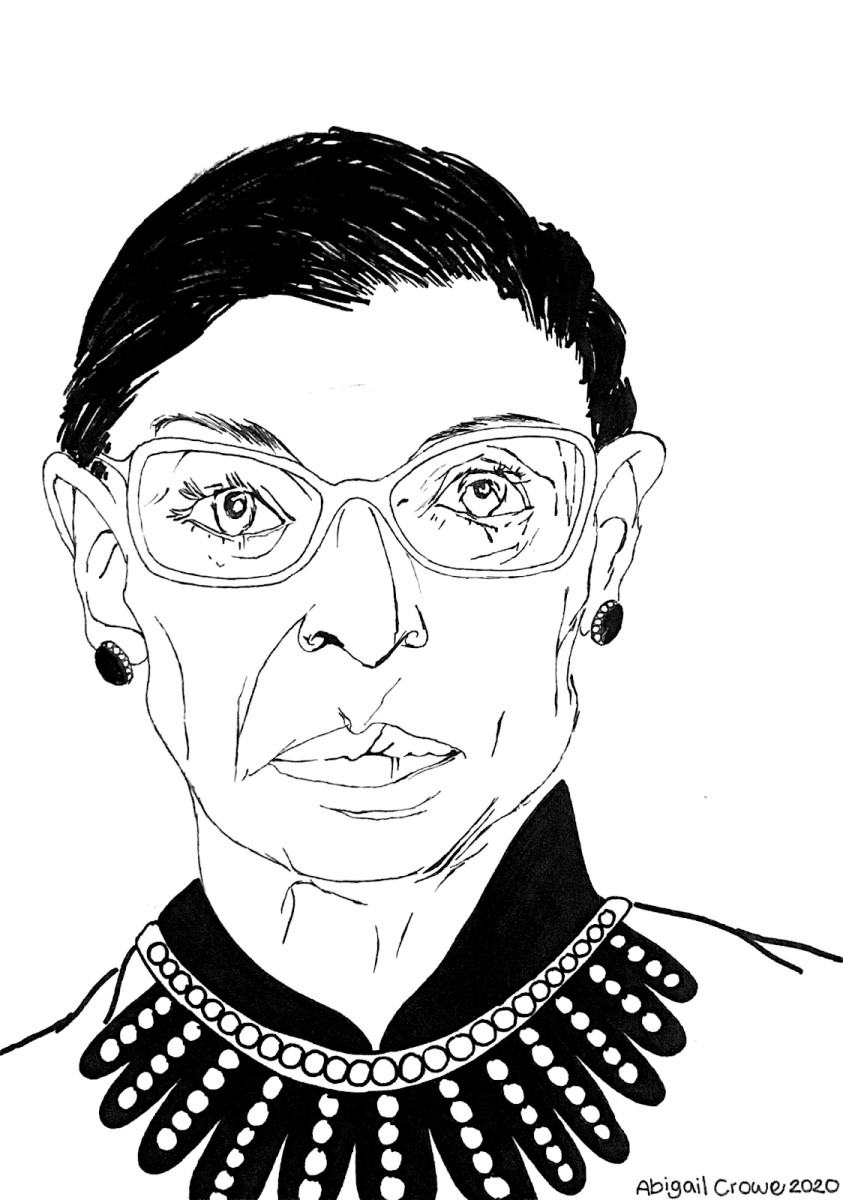Ruth Bader Ginsburg was widely respected across party lines. She channeled her deep reverence for our country towards justice. At first glance her frail, petite figure might deceive you, but she was an unprecedented force of nature. When the polarization and bigotry in our country grew to a deafening roar, she chose to listen and practice empathy. When lies engulfed our country, she stayed loyal to the law. She chose to believe in the power of our Constitution. She challenged the standards of our country not through aggression and entitlement but through composed determination.
Her fight for gender equality was a meticulous agenda designed with precise strategy. Beth Englander, a managing attorney at the nonprofit Oregon Law Center, articulates Ginsburg’s defining attribute; “She had a lack of ego. Her humility allowed her to be creative in her legal strategies.” One of the first cases she argued before the Supreme Court was Craig v. Boren regarding the Oklahoma Beer Law. This law prohibited males under the age of 21 from purchasing alcohol but allowed females over the age of 18 to purchase it, which discriminates on the basis of sex. This case was not flashy; it would not generate sensational headlines across the country, in fact most would consider it to be a trivial matter. But this was the just beginning of Ginsburg’s life work: dismantling the patriarchy through thoughtful, calculated decisions. In the beginning of her legal career she recognized that driving monumental, landmark cases up to the Supreme Court would only delay the process of justice. At the time, the all male court didn’t even acknowledge gender equality as an issue, let alone as a fundamental right protected by the Constitution. In the words of Ruth herself; “I did see myself as a kind of kindergarten teacher in those days because the judges didn’t think sex discrimination existed.” In 1975, Ginsburg argued Weinberger v. Wiesenfeld before the Supreme Court. This case involved a widowed man named Stephen Wiesenfeld who was denied social security protection on the basis of his sex, which prevented him from caring for his child and left them both without basic resources necessary for survival. The court ruled in favor of Wiesenfeld, and the majority opinion stated that “gender-based distinction in social security benefits violated the due process clause of the fifth amendment” because it was “illogical and counter-productive.” Ginsburg’s victory over this case was a pivotal moment in the fight for gender equality under the law; not only would social security now blanket all citizens, but the case would set an unassailable precedent referenced in future cases. Case by case, she redefined what it means to be an independent woman in the United States, establishing lasting change. Undeterred by the status quo, she remained resolute, winning five out of the six cases she argued before the Supreme Court.
Ruth Bader Ginsburg was the second woman to be appointed to the Supreme Court of the United States. During her 27 years on the court she helped preserve and protect cases that remain the backbone of equality in our justice system today such as Roe v. Wade, which legalized abortions federally and United States v. Virginia, which made sex-based discrimination unlawful in the admissions practices of state-funded schools. She is famous for her scathing dissents and the various decorative collars she would adorn herself with to communicate her support or condemnation, a tactic that made waves on social media. Despite Ginsburg being a known liberal political giant, she bonded with conservative originalist Justice Antonin Scalia. They would enjoy nights out on the town together at operas, a passion they shared. The extraordinary friendship between the two will stand as an everlasting example of how diversity in both thought and identity is a bridge, not a barrier.
Ginsburg serves as an icon and role model. “At a time when women’s voices were definitely muzzled, more so than they are now, she continued to persevere and fight through that discrimination and sexism,” says Fanny Ortega, the women’s literature teacher at Franklin. Her relentless spirit was not exclusive to the law, it was apparent in all aspects of her life. You could find her pumping weights with her trainer twice-weekly, working up a sweat in her signature “Super Diva!” t-shirt. Following her death on September 18, supporters and admirers of all backgrounds flocked from neighboring states to congregate on Capitol Hill in celebration of her life.


































